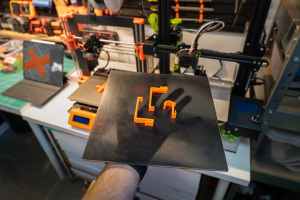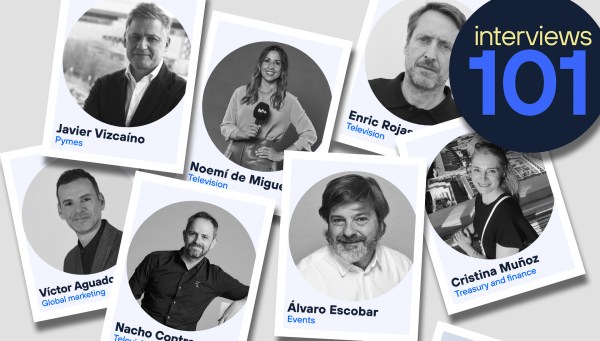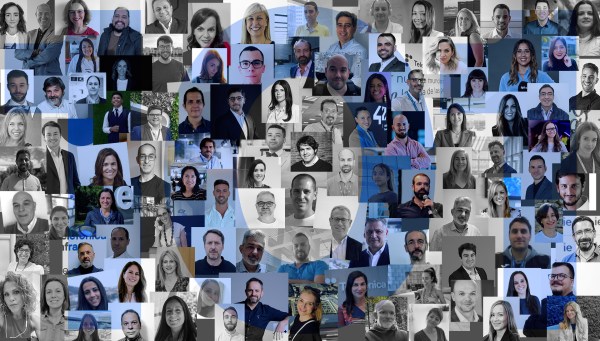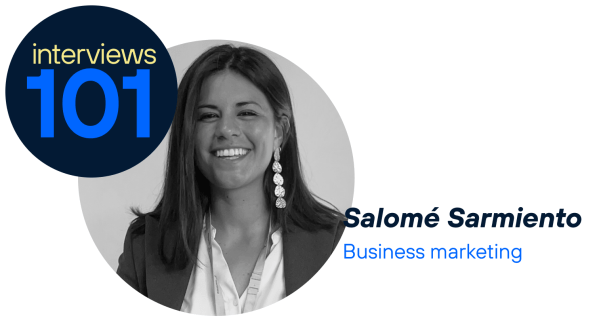Tell us a little about yourself. What does your job at Telefónica involve?
My work has always revolved around the healthcare sector and preventive healthcare. I am an industrial engineer and have a university master’s degree in Digital Health and Telemedicine. I have been part of Telefónica since 2000, I have worked in different subsidiaries and areas, with positions of responsibility in Customer Engineering and Key Accounts.
I have been with Telefónica Empresas since 2017 and currently have different product marketing and business development roles for the healthcare sector. Basically, I try to disseminate and improve Telefónica’s value proposition for the healthcare system.
How important is digital health?
It is a very valuable aid in overcoming the challenges faced by the healthcare sector. Its value lies in offering innovative solutions that combine technologies to improve the provision and results of medical care.
From now on, any advance, clinical trial, care process or diagnostic test will not happen without the support of digital technology as another tool, just like a scale or a drug.
How do you see its implementation in the healthcare sector?
It is becoming increasingly important. In recent years, a step forward has been taken in the commitment to the digitisation of the healthcare system, both public and private. It is true that sometimes it is difficult for patients to see the advances and their benefits from the outside, as they are slow and we tend to want immediate results, but when we look at it in perspective, we see that the change is constant and never ceases.
And the importance of telemedicine?
It is another branch of digital health, which has more to do with remote clinical practice in a multitude of cases: in teleconsultations to avoid patient travel, in sessions between professionals for a second opinion on the diagnosis, in ambulances that send critical patient data before arrival at the hospital, or for screening and early detection of diseases in rural areas.
Telemedicine was a precursor to digital health: there is evidence that in the 19th century the telegraph was used to carry out medical consultations. Today, advances in this field have saved many lives.
At Telefónica we include it in a block of solutions focused on improving the patient experience, but it also has a lot to do with the efficiency of the system, by reducing waiting lists.
It is a technology that is already available and its benefits have been demonstrated, such as the decrease in hospital readmissions. We are excited to see that it is already being implemented on a different scale and not just in an isolated way, as it was years ago.
How much room for evolution does digital health have with the advancement of new technologies?
There is no end to it. Every year, new applications emerge for the healthcare sector and more platforms or algorithms are validated for the clinical field. And most importantly, technologies are being combined, which makes the growth of use cases exponential.
One example is the new ways of detecting pathologies through the combination of AI with medical image visualisation systems.
But it doesn’t stop there: this pairing is now being combined with branches such as genomics, with platforms that detect changes in certain genes and help provide the most appropriate treatment for each patient.
It is true that these new technologies also open up a new challenge in terms of security. Greater control over the privacy and security of patient data is now required, but once again technology has more than enough capacity to ensure that this does not become a barrier to further evolution.
What benefits do they bring from the patients’ perspective?
Patients will gradually realise that the healthcare system is operating more intelligently: their illness will be monitored more closely, not only in the doctor’s office, but throughout the entire care cycle, both before and after the consultation.
There will be technology that is visibly incorporated into their daily lives (wearables, etc.), but much of it will be transparent to them: systems that will prevent them from making unnecessary trips or human errors that could harm their care process. They will feel better cared for and informed, even from home.
And what about healthcare professionals?
The professional faces the initial challenge of changing certain aspects of the way they carry out their daily work, but after this period of adaptation to change, they will notice the benefits. They don’t have to be very big changes, they can be many small ones.
At Telefónica we talk to professionals on an ongoing basis and we see that many obstacles are common, sometimes issues as simple as a lack of fluidity between teams, avoidable repetitive tasks, a poorly planned operating theatre… inefficiencies that may seem minor, but which have a significant impact on their workload.
And this indirectly affects the patient. Technologies such as AI or certain software systems are being applied to solve all these problems.
Who are the people working at Telefónica that you would nominate for this interview that you consider to be excellent in their work?
I think that Óscar García Cantón, a colleague from the Innovation department, more than meets that level of excellence and will be able to give you a cutting-edge and innovative vision of how communications help the digitalisation not only of the healthcare sector, but of many other sectors where Telefónica is present.








